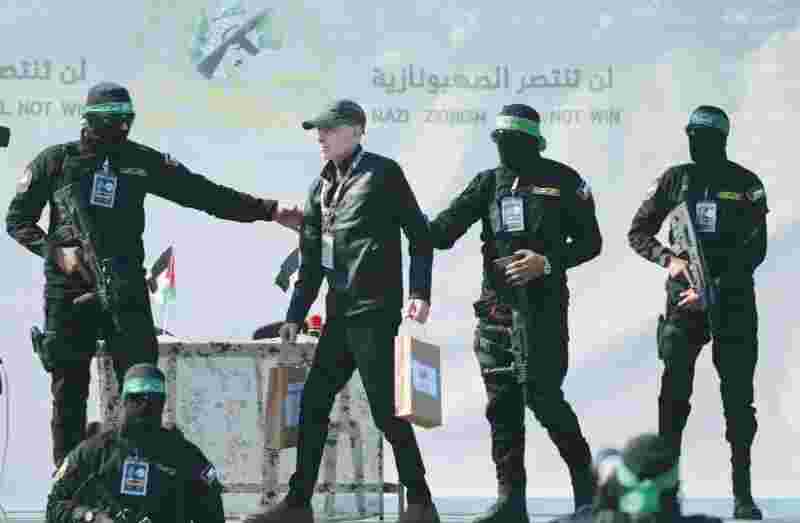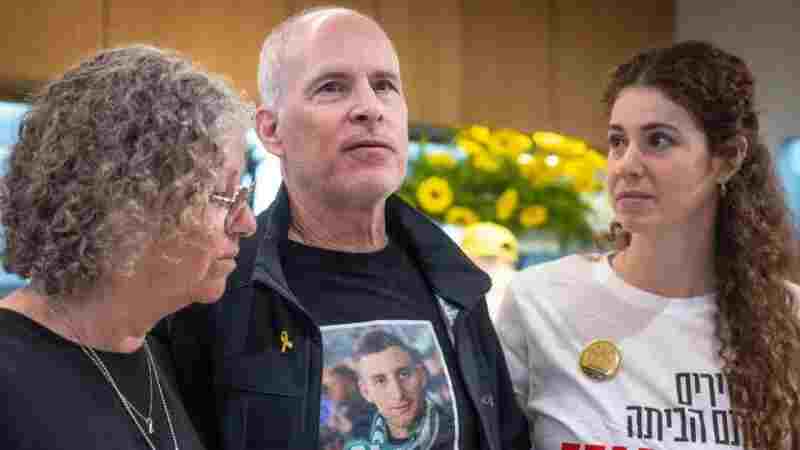An American-Israeli Hostage Finally Comes Home
After 650 long days in captivity, Keith Siegel is finally free. The American-Israeli citizen are hostages during the Hamas-led attacks on Israel in October 2023 and held in Gaza under brutal conditions.
On July 14, 2025, Siegel walked back into freedom—and into the hearts of millions—after an intense negotiation effort led by Israel, Egypt, and U.S. intelligence. His first public words? A direct, emotional plea for the world to not forget those still held hostage.
Who Is Keith Siegel and Why Was He Taken?
Keith Siegel, a dual citizen and respected peace activist, was captured alongside his wife during the early stages of the Hamas-Israel conflict. His wife was released months ago, but Keith remained behind bars—used as leverage in ongoing talks between Israel and Hamas.
His release was part of a rare diplomatic success: a three-party negotiation involving humanitarian organizations and backchannel mediators.
Keith Siegel’s Emotional Statement Post-Release
In a press conference just hours after touching Israeli soil, Siegel said:
“I am grateful to be home. But I left behind people who are still suffering. We must bring them back. We can’t let them become forgotten names.”
His voice cracked as he described the harrowing months in isolation, the despair of waiting, and the hope that someday he would see his family again.
The Impact of Keith Siegel’s Hostage Story
The story of Keith Siegel as a hostage has become a powerful symbol of human resilience. His release is a moment of relief, but also a reminder of the dozens still missing—many of them civilians, aid workers, and children.
In Israel, Siegel’s freedom sparked spontaneous celebrations in Tel Aviv and Jerusalem. Around the world, political leaders praised the release but acknowledged the long road ahead.
The Political Landscape Behind the Hostage Deal
Keith Siegel’s release didn’t happen by chance. It followed:
- 🔍 Months of confidential talks involving Egyptian and Qatari intermediaries
- 📜 A broader push for ceasefire agreements in Southern Gaza
- 📣 Increased pressure from U.S. Jewish and human rights groups
The deal was seen as a goodwill gesture by Hamas, potentially opening doors for a larger hostage exchange framework—a move long demanded by families and activists.
1. A Freedom Earned Through Diplomacy
Siegel was liberated on February 1, 2025, as part of a delicate cease-fire and hostage exchange negotiated by Israel, the U.S., Egypt, and Qatar. He was the first American they release during that round.
2. Why Keith Siegel Release Mattered—and Still Matters
- Personal Impact: Siegel’s release symbolized hope. He waved in defiance as he walked away—“I did wave. I didn’t say thank you”—a powerful statement at the handover ceremony.
- Family Reunited: Though his wife, Aviva, was freed in a previous exchange, speaking about the anguish of their separation only deepens the story’s emotional weight.
3. Keith Siegel: He’s Haunted by What He Saw
During a Knesset hearing, Siegel described horrific conditions he witnessed:
- He endured threats and life-threatening violence—including a gun pointed at his head.
- He witnessed other captives tortured, including women forced by captors to confess under life-threatening duress.
- The psychological pain was immense, especially knowing loved ones and fellow hostages were suffering in silence.
4. An Urgent Plea to Free the Remaining Hostages
Siegel’s message is clear and urgent:
“Another agreement must be signed to get all of the 50 back home as soon as possible”.
He’s become the face of a broader plea—an emotional and public campaign calling on the world to bring every hostage home.

5. The Bigger Picture: What This Means for Negotiations
- Momentum for action: Siegel’s freedom injects urgency into ongoing talks. His story is revitalizing diplomatic efforts and public support.
- Humanization of the crisis: Numbers fade—his suffering and voice make it real for global audiences.
- Pressure for comprehensive deals: No more piecemeal releases—demand is growing for all remaining 50 hostages to be freed in a single, secured deal
What’s Next in the Hostage Crisis?
Siegel’s message is clear: This is not the end.
Here’s what may come next:
- Formal negotiations for a wider release of captives
- International coalition building to mediate further talks
- Stronger humanitarian push for prisoner rights in conflict zones
- More visibility campaigns to keep pressure on world leaders
Keith Siegel Freed After 650 Day: How You Can Support the Hostage Cause
Organizations like Bring Them Home Now and Hostage Families Alliance are working to raise global awareness and support for those still held in Gaza and other conflict zones.
You can:
- Donate to verified humanitarian networks
- Share stories using #FreeTheHostages
- Write to local leaders and demand diplomatic action
- Attend global rallies for hostage awareness
Keith Siegel: The Human Cost of Silence
What makes Keith Siegel’s hostage story so powerful isn’t just the political drama—it’s the deep, emotional truth behind it.
“No one deserves to disappear from the world,” he said. “And no one should have to beg to be remembered.”
His journey is a sobering reminder that in global conflict, it’s the ordinary people who pay the highest price.
Thank you for reading, also if you like this more news like this we have something to recommend you:
🧨 Resilient and Ruthless: How Hamas Embraces Guerrilla Tactics in the Face of Devastation
✅ What You Can Do to Stay Informed and Responsible
- Follow credible news sources: Avoid disinformation and rumors.
- Support humanitarian orgs: Medical Aid for Palestinians, Magen David Adom, etc.
- Read beyond headlines: Understand context, history, and impact.
- Talk responsibly: Online debates can shape perception. Choose words with care.
👉 Subscribe to our Conflict Analysis Newsletter for weekly breakdowns, maps, and context 👉 Share this article to help others understand the evolving nature of guerilla warfare 👉 Comment below: What are your thoughts on asymmetric warfare in the 21st century?
This isn’t just war—it’s evolution in real time. Understand it. Spread awareness.

